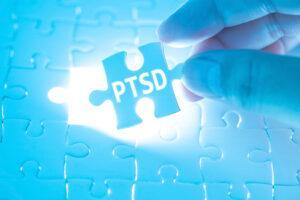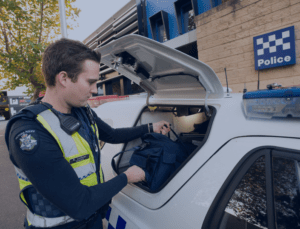
Multiple exposures to traumatic events and descriptions of trauma by others increases the likelihood of developing vicarious trauma. This is especially prevalent in the absence of workplace support, peer to peer support and inadequate self-care.
Vicarious trauma often develops slowly over time where there’s multiple exposures over many years. Difficulties arise in police settings when police begin to feel they have no more to give and their efforts to protect or save people from the harsh reality of their situation fails.
Avoidance of further vicarious traumatisation’s by subconsciously distancing themselves from people who are suffering or who verbalise distress can interfere with work performance and the ability to maintain boundaries.
Organisational support is vitally important in work environments with typically high stress and trauma related duties. Peer to peer support, supervision and opportunities to express feelings and thoughts relating to vicarious trauma should be routinely provided.
Symptoms of Vicarious Trauma
- Increased startled response
- Sleep disturbance
- Self Medication (Alcohol/Drugs)
- Avoidance of workplace or triggers
- Intrusive and repetitive thoughts
- Difficulties concentrating or finishing tasks
- Hypervigilance
- Emotional numbing
- Physical complaints such as headaches and gut issues
- social isolation
- Lack of self care
- Sense of doom or feelings of shortened future
- Extended working hours
- Feelings of hopelessness and helplessness
- Self sacrifice
- Unresolved grief
- Cynicism
- Difficulties maintaining boundaries.
Self Care
- Maintain healthy work boundaries
- Attend regular supervision
- Take regular breaks
- Take leave when due
- Maintain a balanced and healthy diet
- Exercise regularly
- Engage with positive people
- Make adequate sleep a priority
- Learn meditation and deep relaxation skills
- Engage with work colleagues for support

 Exit
Exit










